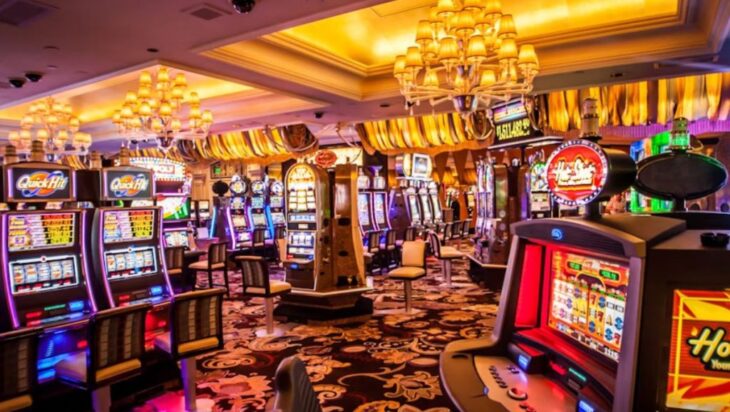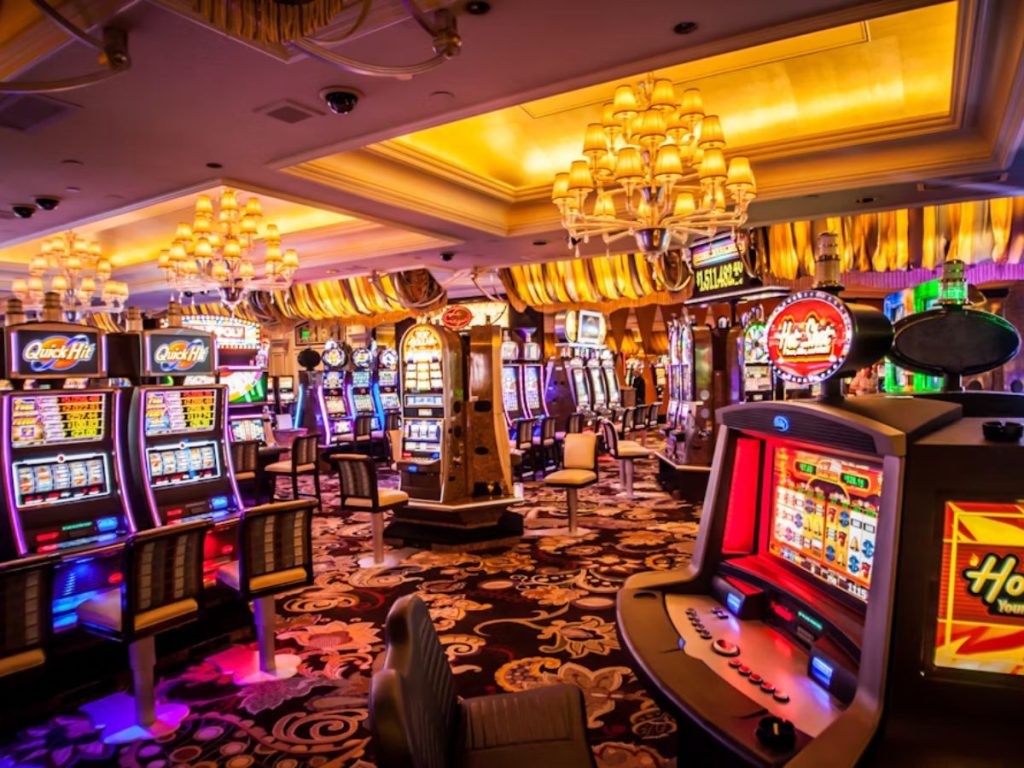Understanding the math behind casino profits: Why the house always wins?

Prepend to the content

When you’re in a casino, the roulette wheel spins and the ball jumps around. You might think you’re going to win when you see the ball heading for a red slot, but then it lands on black, and you lose. It’s disappointing because you end up leaving with empty pockets.
But you know what’s better than losing money at a casino? Not going to one at all. Why? Because those places are set up to make you lose.
In gambling, luck doesn’t really play a big role. The casino always ends up making money because it’s not there to give out freebies—it’s a business. Just like any other business, it has a plan to make sure it keeps raking in profits.
We’ve all heard the saying “the house always wins.” It means that when you gamble, the casino usually ends up making money. This isn’t just a saying; it’s a proven fact based on math.
So, there’s something called the “House Edge” or “casino advantage.” It’s present in every game you find at a casino, whether it’s a table game, lottery, or slot machine, whether you’re playing online or in person.
The house edge isn’t something specific to one casino—it’s built into the games themselves. So wherever you decide to spend your money, whether it’s at one casino or another, you’re always up against this house edge.
If you play roulette and bet on just one number, it might seem like you have a 1 in 36 chance of winning. But there’s a catch. Roulette tables often have a zero, and sometimes they even have a double or triple zero. So, the real chances of winning are 1 in 37, 1 in 38, or 1 in 39, not 1 in 36.
Here are three important math ideas that explain why the casino usually makes money. These ideas are also useful in data science work. So even though we’re talking about gambling here, you can use these concepts in your data science job too.
Survivorship Bias: Losing is dull. It’s something that happens often, to everyone. Winning, on the other hand, is thrilling. It’s a story people love to share, even years later.
Stories about big wins stick around because they’re interesting.
This is why we call this statistical idea survivorship bias. It’s because the stories of winning are what survive. And why is it a bias?
Thinking about it this way, I hear a story about someone winning. That’s one piece of information. Then I hear another, and another, and another. Sometimes I hear about people losing, but not nearly as often as they really happen. So, my brain ends up with a lot more stories about winning and only a few about losing. Without realizing it, my brain starts to think that winning is much more likely than it really is.
Expected Value: Expected value tells you what you would typically win or lose if you made the same bet many times.
In games like roulette, you can bet money and sometimes win, but the odds are usually against you. Let’s say you bet $10 on black. Over time, you’ll probably lose about 27 cents each time you play. So, if you played 1,000 times, you might end up losing around $270. Casinos set up games so they make money in the long run, which is why they usually come out ahead.
Hot-hand Fallacy: Hot-hand fallacy is when people believe they’re on a winning streak in a game and keep playing, thinking they’re more likely to win. But in reality, luck doesn’t work like that. Even if you’ve won a few times, your chances of winning again are still the same.
For example, when flipping a coin, getting 10 heads in a row seems unlikely, but if you flip the coin enough times, it’ll happen eventually. It’s the same with gambling – if you play a lot, you’ll probably have some lucky streaks.
But these streaks are just luck, not skill. Betting more because you think you’re on a roll doesn’t change the odds. The casino always has the advantage, and the more you play, the more likely you are to lose.
So, it’s important not to fall for the hot-hand fallacy. If you win, consider yourself lucky and leave the game while you’re ahead. The longer you play, the more likely you are to lose, because the odds are always in favor of the casino.
What draws people to gamble despite the casino’s consistent advantage?
People gamble despite knowing the odds favor the casino because it’s entertaining and there’s a chance, even if it’s small, of winning money. Many players understand the casino has an advantage, but they might underestimate how significant it is.
Casinos are clever at keeping players engaged by offering enough hope to keep them playing. But the longer you gamble, the more the odds favor the house, increasing their advantage.
Only a small fraction of gamblers actually win, as casinos are known for their profitability. In 2013, The Wall Street Journal uncovered data from a private gambling database, showing that just 13.5% of gamblers come out ahead.
It’s up to you if you want to gamble or not, we understand. Playing can be enjoyable, especially when you win by luck. But I want you to know the numbers behind gambling. I want you to see your chances realistically and why the casino usually comes out on top.
The post Understanding the math behind casino profits: Why the house always wins? appeared first on G2G News.



